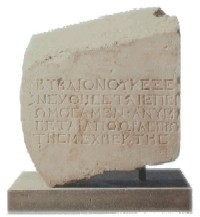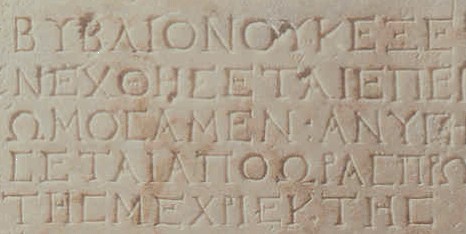
| item |
epigraphe in greek language and script |
| material |
marble |
| dimensions |
length: ?cm width: ?cm height: ?cm |
| script |
Greek alphabet, capital letters. Sigma presented with C. |
| date of creation |
1st century e.v. |
| place of discovery |
Athens, ancient Agora (=market). |
| initial place |
Probably in front of the Titus Flavius Pantainos library. |
| place of exhibition |
Museum of the Ancient Agora of Athens Inv.No. I 2729 |
| text description |
Clearly readable five (5) lines. No loss of any text parts. |
| text content |
Regulations of library. Opening and closing hours. See line-by-line. |
| text reference |
Seems to be referring to the library of the Athens Agora, founded by donation of Titus Flavius Pantaenos (Pantainos) 1st century e.v. |
| bibliographic reference |
SEG (Supplementum Epigraphicum Graecum), XXI, 500 |
